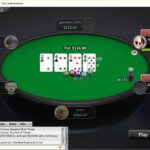The great Japanese swordsman and philosopher Miyamoto Musashi (c.1584-1645), author of the classic strategy book The Book of Five Rings, would probably have been a great poker player. While poker isn’t exactly samurai swordplay (and the stakes are hardly life-and-death, although it can feel like it sometimes), poker players can’t go too far wrong in applying Musashi’s lessons for the battlefield to their play on the tables.
A good example of Musashi’s strategic wisdom is what he had to say about timing: “All things entail rising and falling timing. You must be able to discern this,” he wrote. “You win battles by knowing the enemy’s timing, and using a timing which the enemy does not expect.” For the online poker player, Musashi’s advice is about “timing tells” – both those of your opponents as well as your own.
A timing tell is a change in the timing of a player’s actions – a deviation from their normal pattern of play – that can potentially be leaking valuable information about the strength of their hand. Unlike in a live game where we are actually physically observing our opponents and watching every twitch and grunt they make for hints about what cards they might be holding, when we’re playing online the timing tell is about the only thing close to a physical tell we have to go by, so we have to be on the lookout for it.
We also have to pay careful attention to what information our own timing tells are leaking to our opponents. In fact, this is probably more important than picking up on theirs. For the most part, we want to become aware of and suppress any habitual tells we may have to avoid giving out information that our opponents can use against us and, on occasion, be able to manipulate and give false tells to potentially induce our opponents into making mistakes.
Timing tells come about for a very simple reason: We make simple decisions quickly but take more time to make more complicated ones. So, generally, we take quick actions when our hand is easy to play and act slower when our hand is more difficult.
Often, with easy hands, we make our decision well before it’s our turn to act. For a simple example, let’s say we’re dealt 72 off suit in the big blind. We instantly know preflop that we’re not going to call a raise with such a garbage hand, so our temptation is to just use the auto-check/fold function and turn our attention to another table. But if we’re dealt AK suited in the same position, then we’re almost certainly going to raise and possibly re raise if someone raises before the action gets to us. Then we have to decide how much we’re going to raise and then we have to take the action. This all takes time, so there’s going to be a big difference in how long we take to finally act playing our garbage hand and our strong hand This difference in timing is the basis of the tell.
This is why, by the way, that it’s a good idea to not use the auto-check/fold and auto-call functions in the blinds at all when you’re playing if you can help it. While it doesn’t make much difference to the outcome of hands you’re going to fold to any bet anyway, waiting a few seconds and then manually checking or folding, to keep your preflop action timing relatively consistent from hand to hand, suppresses the tell. For the massive-multi-tabler this is harder to do, but if you typically don’t play more than half a dozen tables like I do, it’s fairly easy to manage. This reduces aggression from players that like to attack obvious weakness and, more importantly, helps to disguise your stronger hands when you get them. Next to a bad beat, there’s nothing worse than getting a good hand and not getting any action because you’ve put up a neon sign that you have it through your timing.
Generally, your goal should always be to be unreadable your opponents – to keep them guessing – so maintaining a consistent timing pattern between when the action gets to you and when you act, on every street of play, is a good habit to get into. When I catch myself acting too quickly on routine plays, I force myself to count out steamboats in my head before I click until I catch my rhythm again.
The best way to get a feel for timing tells and to learn how to suppress them is to closely observe other players and to monitor and adjust your own play when you spot a bad habit. The more games you play the better you’ll get.
Keep in mind that a timing tell is not necessarily just one piece of timing. It is often a cumulative thing, after your opponent has acted more than once – preflop, flop, turn and river – so it’s important to pay attention to your opponent’s timing throughout any given hand, as well as throughout the course of a session. After a while, you’ll develop a sense of the rhythm of their play, which will make deviations from that rhythm that much more apparent.
Timing tells are also opponent dependent. Some players play quickly and some players play slowly as a matter of habit, so their deviations are harder to spot, if there are any. Experienced online players also say that timing tells are often overrated, because many regular multi-tabling players are playing so many tables at once that changes in the timing of their actions usually have more to do with them trying to multi-task and manage their tables than anything else. However, there are still quite a few players who play only a handful of tables, and it is against these opponents that watching for timing tells can pay the most dividends.
Submit your review | |









